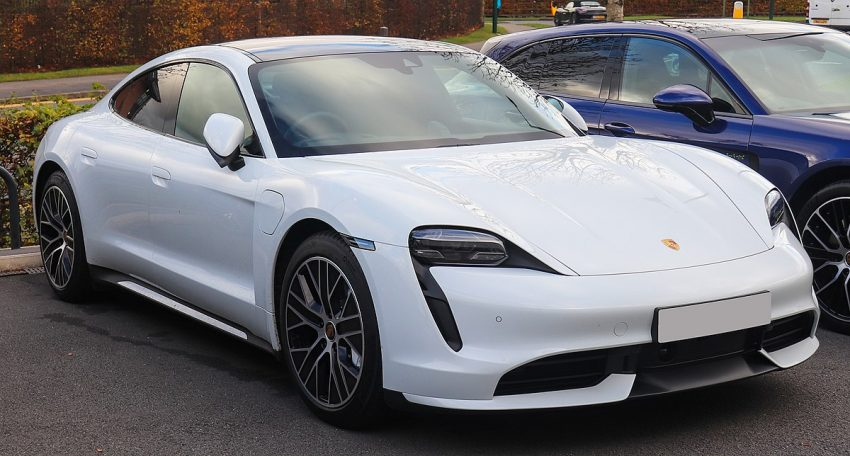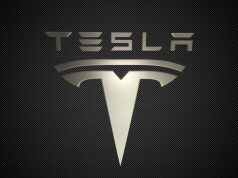What electric cars can be considered Tesla competitors? Obviously, one of the main points of comparative criteria when it comes to electric vehicles should be the power reserve. For many used cars in Germany, the range was the main argument in favor of Tesla when choosing an electric car.
The second, no less important, parameter is a modern design, both exterior and interior. All the mentioned features may have been impossible without a new high bar in the technologies used in auto manufacturing. For instance, Tesla has been one of the pioneers in autopilot and wireless vehicle system updates. Based on these criteria, we selected Tesla’s main competitors for electric vehicles.
1. Jaguar I-Pace
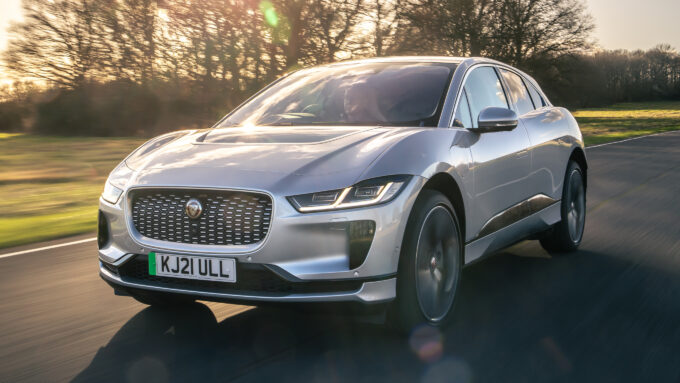
The I-Pace model is Jaguar’s first electric vehicle. The company didn’t hide the fact that they see the Model X as their main competitor. It was this electric car that the British staged demonstration races with.
Speaking of specifications, the I-Pace configuration is equipped with two electric motors, the combined capacity of which is 400 hp. The torque reaches almost 700 Nm. These indicators allow the electric car to accelerate to 60 mph (100 km/h) in 4.8 seconds.
If we look at the Jaguar I-Pace’s battery capacity, it reaches 90 kWh. From a household outlet, it can be charged in 13 hours. Fast charging allows you to reach 80% of the accumulator’s capacity in 40 minutes.
2. Mercedes EQC
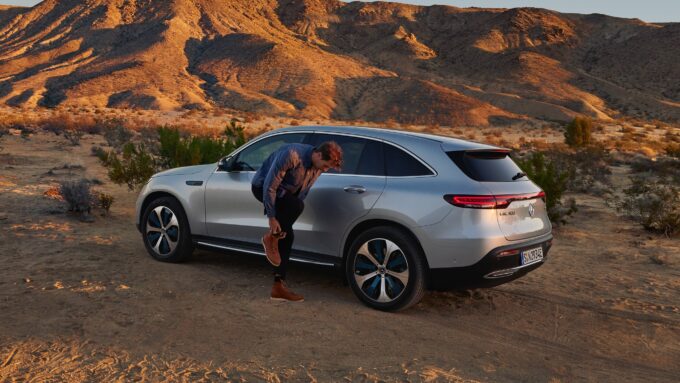
The luxury EQC configuration is the first electric crossover from Mercedes. Its sales started in 2019. The Mercedes modification EQC 400 4Matic is equipped with two electric motors. In total, they produce 408 hp and 760 Nm of torque.
The battery, with a capacity of 80 kWh, provides about 420 kilometers of run (according to the WLTP cycle). Its charging from the high-speed terminal takes 40 minutes.
Already in the base, the EQC is equipped with a media complex with two 10.25-inch displays with additional features optimized for electric cars. For example, the digital instrument panel instead of a tachometer displays the current energy consumption and range.
3. Porsche Taycan
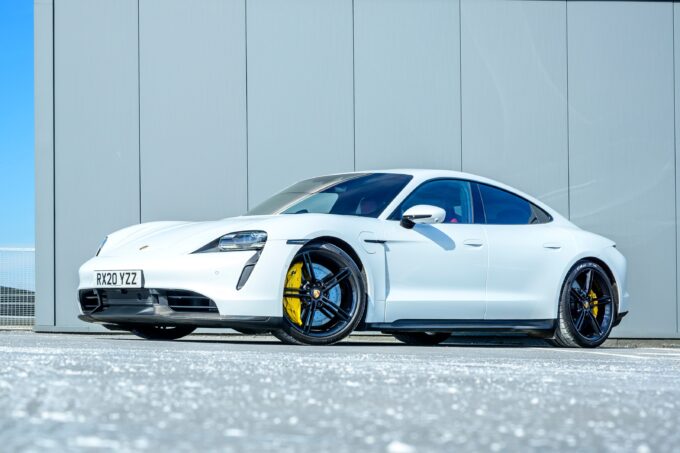
The Porsche Taycan is perhaps the main competitor of the Tesla Model S Performance version. The Taycan Turbo S configuration is equipped with a 93.4 kWh traction battery. The total output of the power plant is 761 hp and 1050 Nm of torque.
The declared acceleration dynamics for 60 mph (around 100 km/h) reach 2.8 seconds. The maximum speed of the Taycan electric sports car is 160 mph (or 260 km/h).
However, the German Taycan loses out to Tesla in terms of battery power reserve. According to the WLTP cycle, the long-range Tesla Model S drives 380 miles (or 610 kilometers) on a single charge. The maximum distance the Taycan is able to drive reaches around 265 miles (approximately 430 km).
4. Nissan Ariya
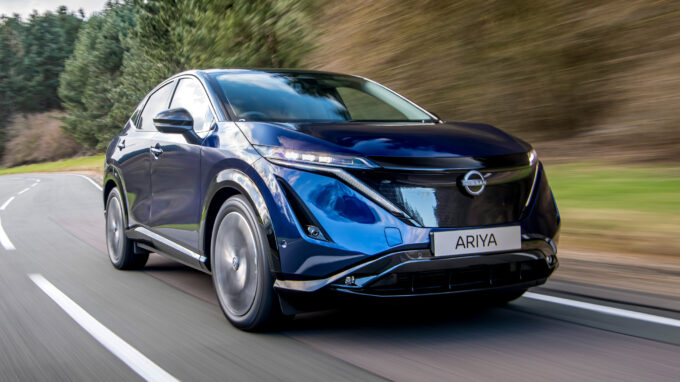
The Nissan Ariya is one of the most recent and significant innovations in the world of electric vehicles. The global debut of the electric crossover took place in July 2020.
The Ariya model received several versions. In the crossover car body trim, one can be equipped with a battery that has a capacity of 63 or 87 kWh. The EV range varies from 225 to 310 miles (360 to 500 km) on the WLTP cycle.
The total power of the electric motors installed on the most powerful Ariya configuration is 394 hp. Such an electric car accelerates to 60 mph (100 km/h) in about 5 seconds.
5. Mustang Mach E
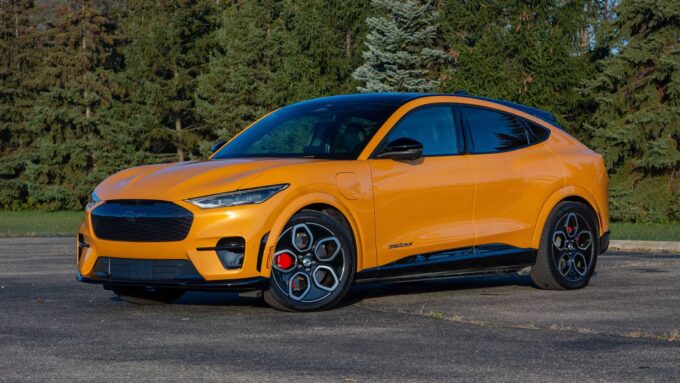
This EV model is luxury and not so popular among car enthusiasts. However, it’s a good alternative for those who, for some reason, don’t like the Tesla Model X configuration. The electric Mustang has two modifications. The first one that is considered basic has a 75.7-kWh battery and a 255-hp motor. A long-range configuration is equipped with a 98.8-kWh battery and a 282-hp motor.
In addition, you can also find all-wheel-drive options in the Mustang Mach E lineup. The batteries will be the same. However, there is a more powerful 332-hp motor installed.
Depending on the version, the range varies from 210 to 370 miles (340 to 600 km). The acceleration to 60 mph (100 km/h) takes from 7 to 5.5 seconds.
6. Rivian R1T
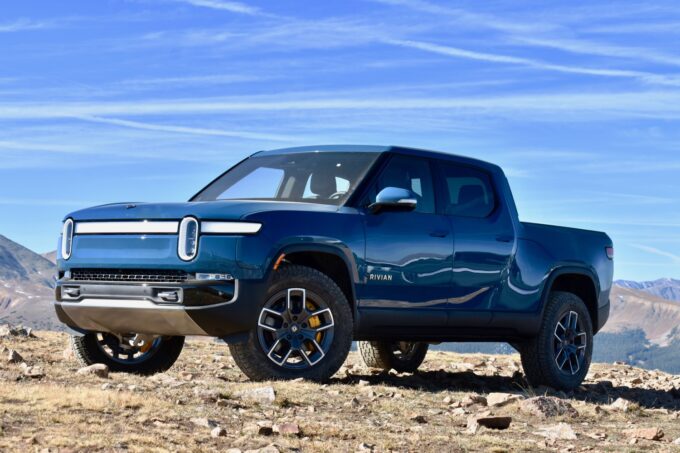
One of the Tesla Cybertruck’s main competitors, the Rivian R1T electric pickup truck, debuted in June 2021. The vehicle is equipped with four electric motors that have a total output of 760 hp and 1120 Nm of torque. Also, the configuration includes a traction battery. Its capacity, depending on the modification, varies from 105 to 180 kWh.
Without recharging, this pickup truck can travel up to 400 miles (around 645 km). From a standstill to 60 mph (almost 100 km/h), it accelerates in 3 seconds. Among the main features of the Rivian R1T electric vehicle model is the ability to recharge from other configurations of the brand.
7. Audi e-tron GT
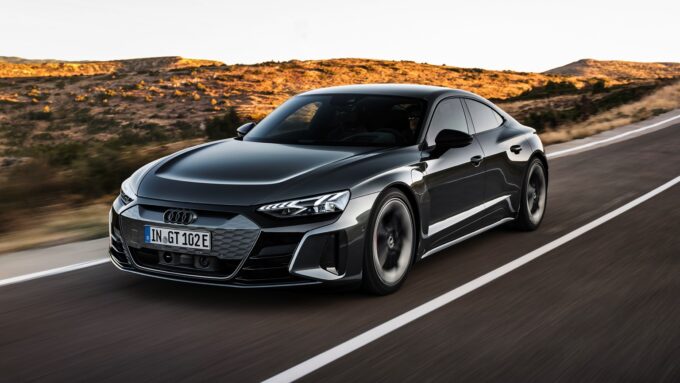
The Audi e-tron GT is another luxury electric vehicle that has been well-received by consumers. This vehicle offers a sleek and sophisticated design, with advanced technology features and a spacious cabin. The e-tron GT has a range of up to 238 miles, and its dual-motor powertrain delivers quick acceleration and smooth handling.
8. Lucid Air
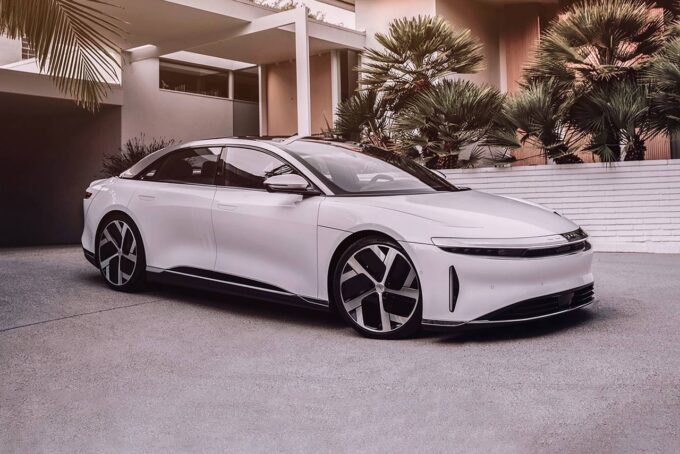
The Lucid Air is a relatively new entrant into the luxury electric vehicle market, but it has quickly made a name for itself with its impressive performance and advanced features.
The Air boasts a range of up to 520 miles, making it one of the longest-range electric vehicles available. It also features a spacious and luxurious interior, with high-quality materials and cutting-edge technology.
In Conclusion
As you can see, there is a wide range of electric vehicle models that can be considered Tesla alternatives. Sometimes, you don’t need to chase a well-known and overpriced brand to receive an electric car of great quality.
The EV representatives on our list can easily prove it. So, compare different options and study all the alternatives available in the automotive market.

